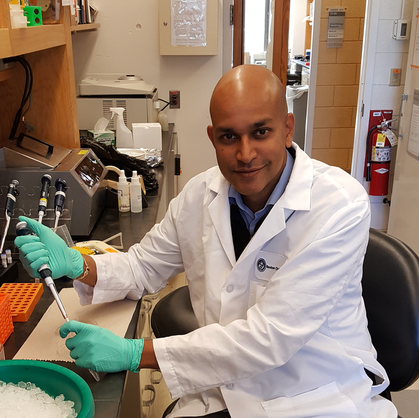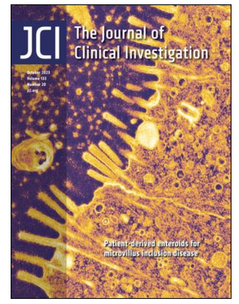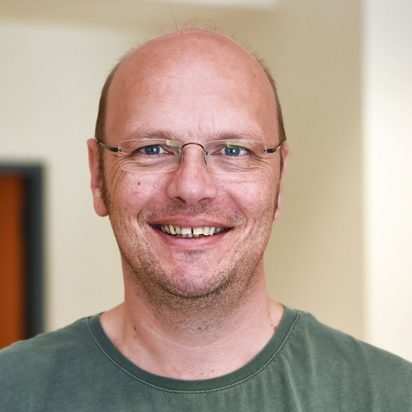Today's research, tomorrow's hope...
JAY THIAGARAJAH, MD, PHDInstructor of Pediatrics
Harvard Medical School |
Dr. Thiagarajah has long had an interest in gastrointestinal diseases, from both a research and clinical perspective. Following his Ph.D. in the physiology of fluid transport in the colon at King’s College London, he pursued a postdoctoral fellowship in the lab of Dr. Alan Verkman at University of California, San Francisco where his research encompassed the epithelial biology of water and ion channels, the development of novel optical methods, and pre-clinical drug development. He then returned to the U.K. to train as a medical doctor and fulfill his passion for treating individual patients. During medical school, he spent time in Dhaka, Bangladesh supervising pre-clinical studies to develop anti-diarrheal agents. Also during medical school, he founded a non-profit medical organization to provide care and training in underserved areas in Nepal. Following medical school, he moved back to the U.S. to continue his medical training in Pediatrics at Massachusetts General Hospital, and fellowship in Gastroenterology at Boston Children’s Hospital. His research focuses on the role of channels and transporters in epithelial biology and the genetics and biology of congenital diarrheal disorders. He is currently an Attending Physician in the Division of Gastroenterology, Hepatology and Nutrition at Boston Children’s Hospital, co-director of the Congenital Enteropathy and Diarrhea Program and co-director of the Imaging Core at the Harvard Digestive Disease Center.
|
Funded PRoject
|
Dr. Thiagarajah and his team will embark on a two-tiered investigation into MVID cell behavior and explore potential undiscovered, existing therapies by producing an assay in which a battery of FDA approved therapies can then be tested. It is through this work that his team hopes to reveal what is unknown about MVID, and aim to provide more relief for children living with this disease in the future.
|
Sven van Ijzendoorn, phdProfessor, Principle Investigator
University Medical Center Groningen |
Sven van Ijzendoorn received his Master degree at the University of Maastricht in 1995 and his PhD degree (cum laude) at the University of Groningen (laboratory of Dick Hoekstra) in 1999. With a long-term fellowship of the Human Frontier Science Program (HFSP) he performed his postdoctoral studies at the University of California San Francisco (UCSF) in the laboratory of Keith Mostov. He then returned to the Netherlands to start his research group in the department of Cell Biology at the University Medical Center Groningen, where he is currently appointed as full professor. His research focusses on the molecular mechanisms that control the intracellular dynamics of proteins, lipids and membranes in the context of the functional organization of cells, and to understand how these mechanisms contribute to health or, when disrupted, to human diseases. In this context, his research also focusses on elucidating the pathogenesis of rare congenital disorders, develop patient-specific iPSC-based cell models and identify leads for novel therapeutic strategies. Sven van Ijzendoorn is member of the board of the Netherlands Association for the Study of the Liver (NASL), member of the advisory board of the Dutch Society for Cell Biology, member of the editorial board of ‘Tissue Barriers’, curator of the international registry of patients with microvillus inclusion disease, and program leader of the UMCG Center for Liver, Digestive & Metabolic Diseases.
|
Funded Project 1Microvillus inclusion disease is caused by gene mutations. Many MVID-associated mutations belong to a specific type of mutation, which stops the production of protein. Recently, drugs have been identified that can suppress this type of mutation and allow functional protein to be produced. With the support of the TKO Strong Foundation, prof. van IJzendoorn and his colleagues will test these drugs on cells from MVID patients to determine whether these drugs can restore their protein function. Some of these drugs are in Phase III clinical trials for other genetic disorders. This means that if their effectiveness can be demostrated in MVID patients' cells, it may be possible to rapidly proceed to a clinical trial.
|
Funded Project 2The procedure to diagnose MVID is difficult and not failproof. An early and correct diagnosis, however, is critical to start appropriate treatment without which patients die during infancy. Therefore, better diagnostic tools are urgently needed. With the support of the TKO Strong Foundation, prof. van IJzendoorn and his colleagues will determine the potential of a novel technology for a failproof diagnosis of this devastating disease.
|
MVID International RegistryTo gain mechanistic insight in the clinical manifestations of MVID and how these evolve with therapeutic interventions and age, we need a detailed understanding of the spectrum of MVID- associated gene mutations. Therefore, prof. van IJzendoorn and colleagues have constructed an international MVID Patient Registry, accessible at
http://www.MVID-central.org. The continuous expansion of this registry with additional MVID patients and their gene mutations is essential to improve disease diagnosis, prognosis, and genetic counseling. Therefore, we encourage you to contact prof. van IJzendoorn to make sure that all MVID patients are included in this registry. |
Proudly powered by Weebly



